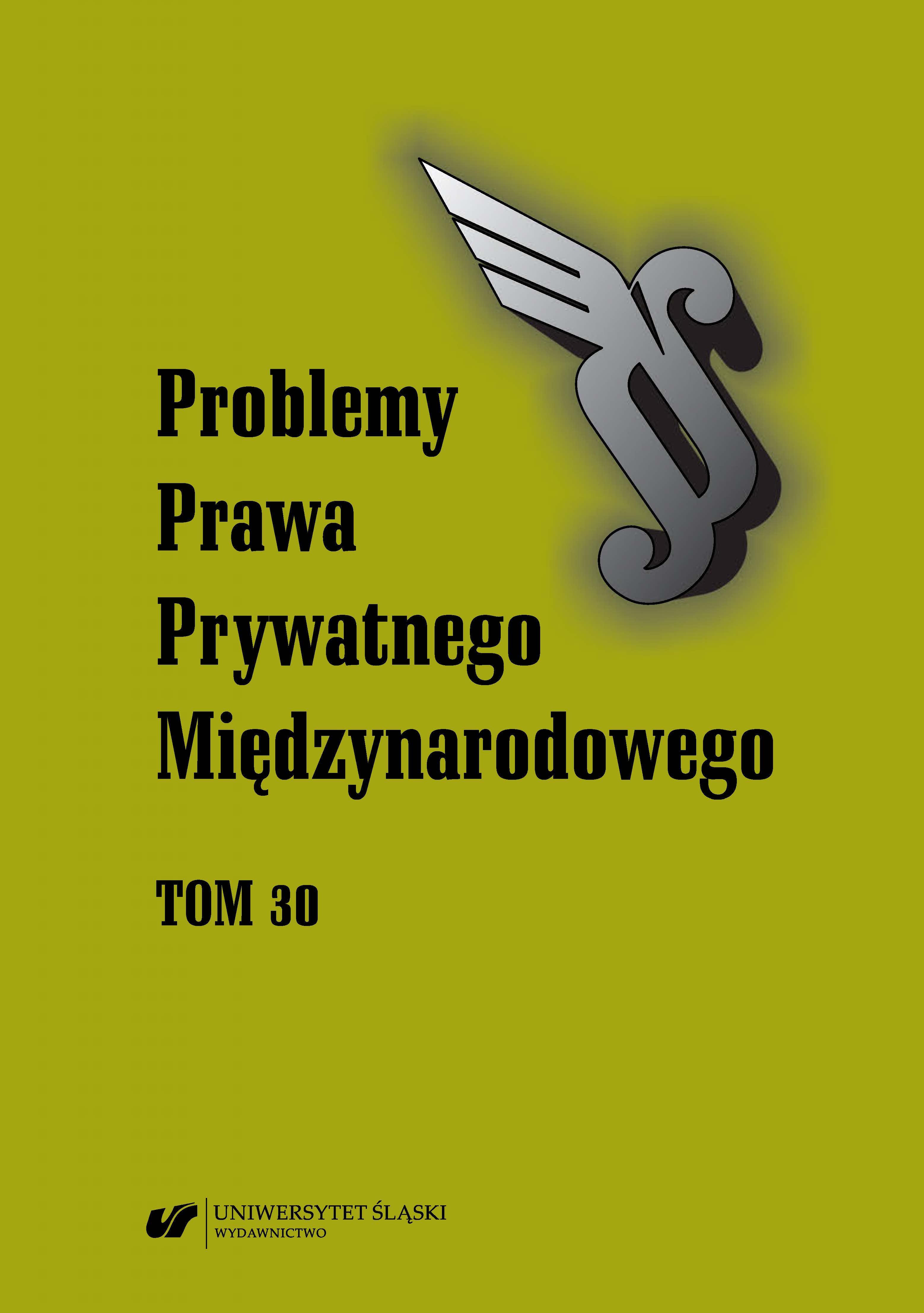Transgraniczne przekształcenia (zmiana formy prawnej) spółek w prawie prywatnym międzynarodowym — zagadnienia wybrane
Cross-border Conversion (a Change of a Legal form) of Companies in Private International Law — Selected Issues
Author(s): Arkadiusz WowerkaSubject(s): Economy, Law, Constitution, Jurisprudence, Civil Law, International Law, Commercial Law
Published by: Wydawnictwo Uniwersytetu Śląskiego
Keywords: companies; private international law; cross-border conversions; applicable law; scope of application of the applicable law
Summary/Abstract: This paper delas with the selected issues of cross-border conversions of companies in private international law. Conversion is one of the forms of transformations of companies. The basic form of cross-border transformations mostly used by companies are mergers. However, as evidenced in particular by the judgment of the Court of Justice in the case of Polbud, also the change of the legal form is an institution of interest and present in the practice of cross-border activities of companies. In the foreground are the conflict of laws issues arising under private international law, in particular the question of the law applicable to the cross-border change of the company’s legal form. In order to answer this question, a definition of a conversion under the private international law has been provided. A cross-border conversion of a company must be distinguished from a cross-border transfer of the seat of the company as a connecting factor, as they are two completely different operations governed by different conflict-of-law rules of private international law. In the case of Polbud, there are serious doubts as to whether there was a cross-border conversion or cross-border transfer of the company’s seat. The law applicable to cross-border conversions is determined on the basis of the principle of combination or unification of the personal statutes of the state of the exit form and the state of the intended form of the company. Under this principle, however, the application of both legal systems is problematic. Useful guidelines are provided by the model expressed in art. 86c in connection with art. 86q of the directive on certain aspects of company law. The scope of application of the law applicable to cross-border conversions is determined by both leges societatis in question. Cross-border conversion operations also arise qualification problems related to issues such as the protection of creditors, minority shareholders and employees. The harmonized substantive provisions of the directive on certain aspects of company law make it easier to carry out cross-border conversions in the European dimension. The existence of such harmonized norms removes the barriers resulting from the applicable substantive law based on various principles and rules and makes the conflict-of-law issues then practically of secondary importance.
Journal: Problemy Prawa Prywatnego Międzynarodowego
- Issue Year: 2022
- Issue No: 30
- Page Range: 57-78
- Page Count: 22
- Language: Polish

